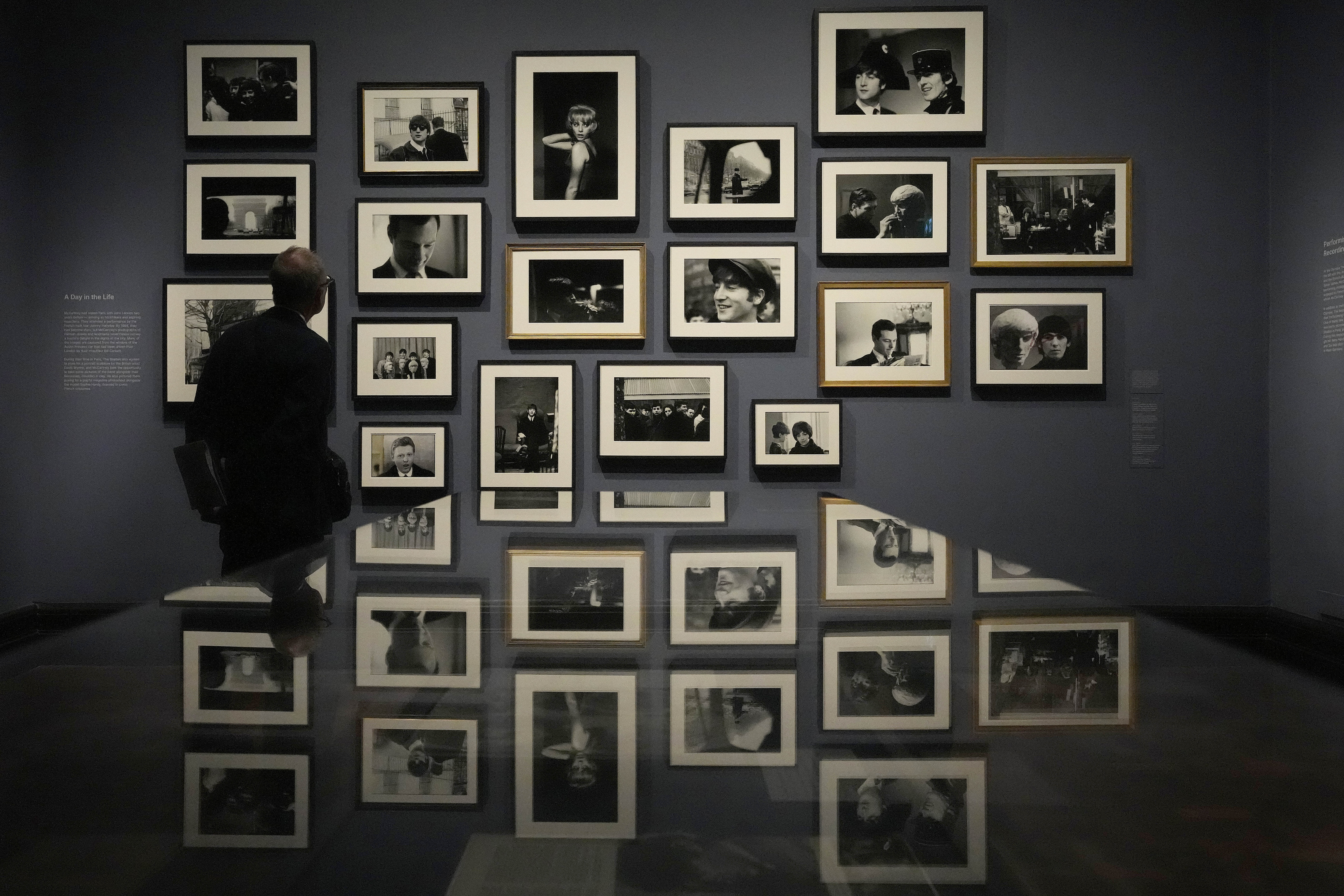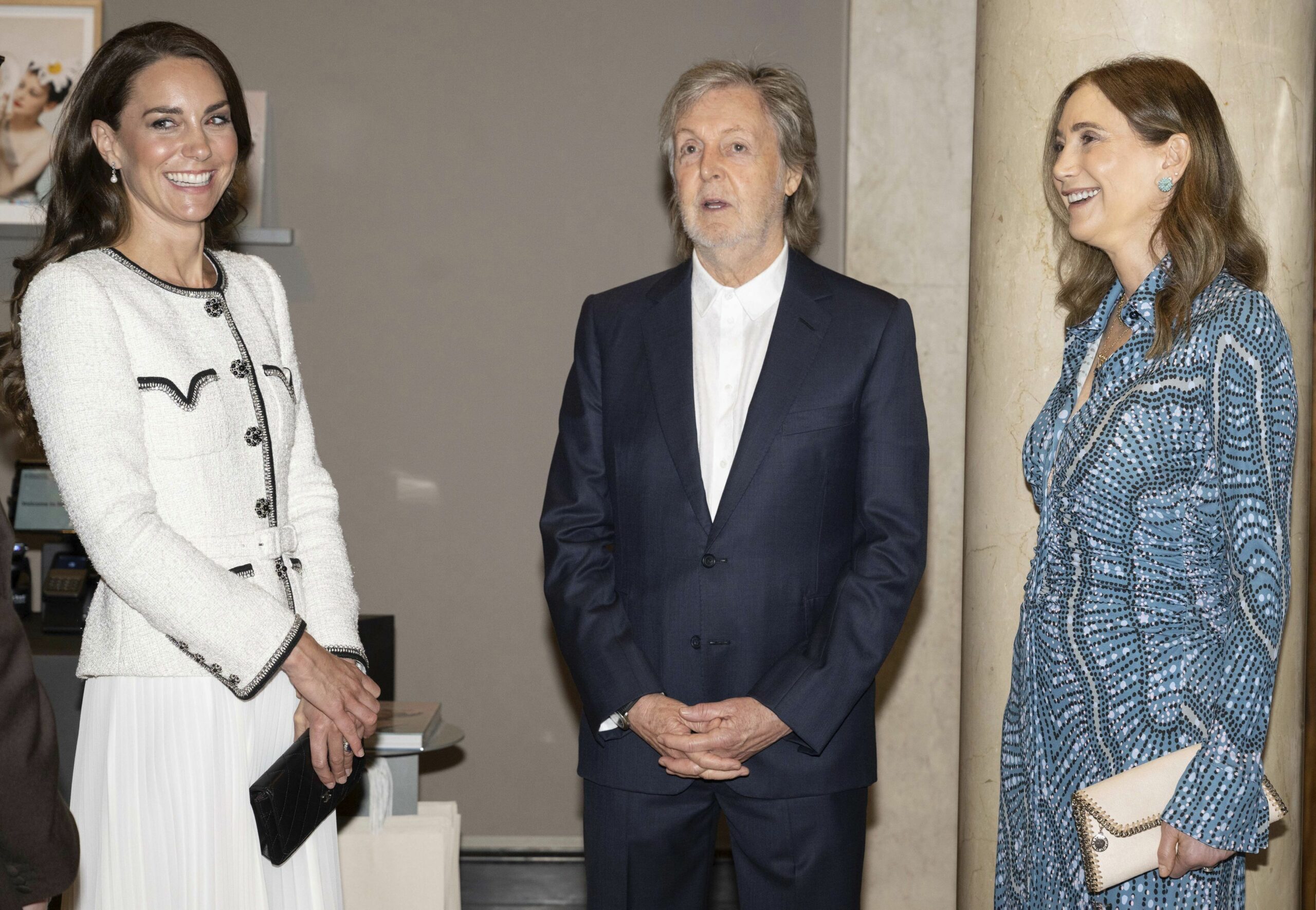LONDON (AP) – Is there really a new way to look at The Beatles, one of the most filmed and photographed bands in history?
Yes, says Britain’s National Portrait Gallery, which is providing a fresh perspective with an exhibition of band’s-eye-view images that Paul McCartney captured as the group shot to global fame.

Gallery director Nicholas Cullinan said the exhibit, subtitled “Eyes of the Storm”, is a chance “to see, for the very first time, Beatlemania from the inside out”.
The seed for the exhibit was sown in 2020, that year of lockdown projects, when McCartney dug out 1,000 forgotten photos he’d taken in 1963 and 1964, as the Fab Four went from emerging British celebrities to world megastars. He and his team asked if the National Portrait Gallery was interested in displaying them.
“I think you can probably guess our response,” Cullinan said as he introduced the exhibition to journalists in London on Tuesday.
The show includes 250 photos taken in England, France and the United States (US) that illustrate The Beatles’ journey from cramped dressing rooms in provincial British theaters to stadium shows and luxury hotels.
“It was a crazy whirlwind that we were living through,” McCartney writes in a note present at the start of the exhibit. “We were just wondering at the world, excited about all these little things that were making up our lives.”
Rosie Broadley, who curated the show, said the gallery soon realized the trove “wasn’t just interesting pictures by a famous person”.
“It’s actually telling an important story about cultural history – British cultural history and international cultural history,” she said. “This is a moment when British culture took over the world for a while.”
The display begins in late 1963, shortly after McCartney acquired a Pentax 35mm camera. The early black-and-white images include portraits of The Beatles, their parents, girlfriends, crew and colleagues, including manager Brian Epstein.
Broadley said these images depict “a parochial postwar British celebrity” – concerts in provincial cinemas alongside now-obscure bands like Peter Jay and the Jaywalkers, 16-night variety-style Christmas shows at London’s Finsbury Park Astoria.
Cullinan said the photos convey a “sense of intimacy” missing from professional photos of the band.
“This wasn’t The Beatles being photographed by press photographers of paparazzi but peer-to-peer,” he said. “So there’s a real tenderness and vulnerability to these images.”
In January 1964, McCartney took his camera with the band to Paris, capturing the city at the height of its French New Wave cool. While there, The Beatles learned that I Want to Hold Your Hand was a No 1 hit in the US.
Within days, they were on a plane to New York, where their February 9 performance on The Ed Sullivan Show was watched by 73 million people, and nothing was ever the same again.
The US section of the exhibit shows the band’s increasingly frenetic life. Many of the shots were taken from planes, trains and chauffeur-driven automobiles and show crowds of screaming fans and rows of police. Sometimes, McCartney turned his lens back on the newspaper and magazine photographers looking at him.
One striking shot was taken through the back window of a car as a crowd chased the band down a Manhattan street, a scene echoed in the band’s first feature film, A Hard Day’s Night, made later that year.
McCartney also took pictures of strangers – a girl seen through a train window, ground crew at Miami airport goofing around.
The band’s final stop was Miami, where McCartney switched to color film. The results, Broadley said, “look like a Technicolor movie, like an Elvis film.” The photos show John, Paul, George and Ringo swimming, sunbathing, water skiing, even fishing. From a hotel window, McCartney photographed fans writing “I love Paul” in giant letters in the sand.

McCartney, 81, spent hours talking to curators about the photos and his memories as they prepared the exhibit, one of the shows reopening the National Portrait Gallery after a three-year renovation.
The images were preserved for decades on undeveloped negatives or contact sheets, and McCartney had never seen them in large format until the gallery had them printed.
The project was not without risks. McCartney acknowledges he’s not a professional photographer – though his late wife, Linda McCartney, was, as is their daughter Mary McCartney. Some of the photos are blurry or hastily composed. But what they lack in technique they make up for in spontaneity.
Broadley said McCartney “was nervous about showing some of the less formally composed ones or the less in-focus ones”.
“But I think we persuaded him that we liked those because of the story that they tell,” she said. “It’s quite nice to have those ones where they’re sitting around with a cup of tea before the event.”



















































